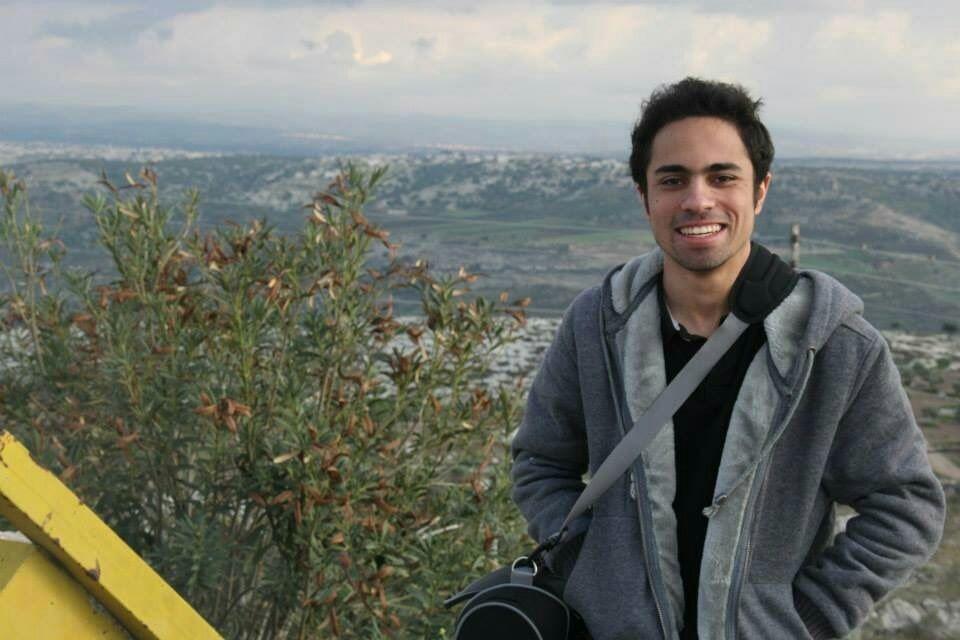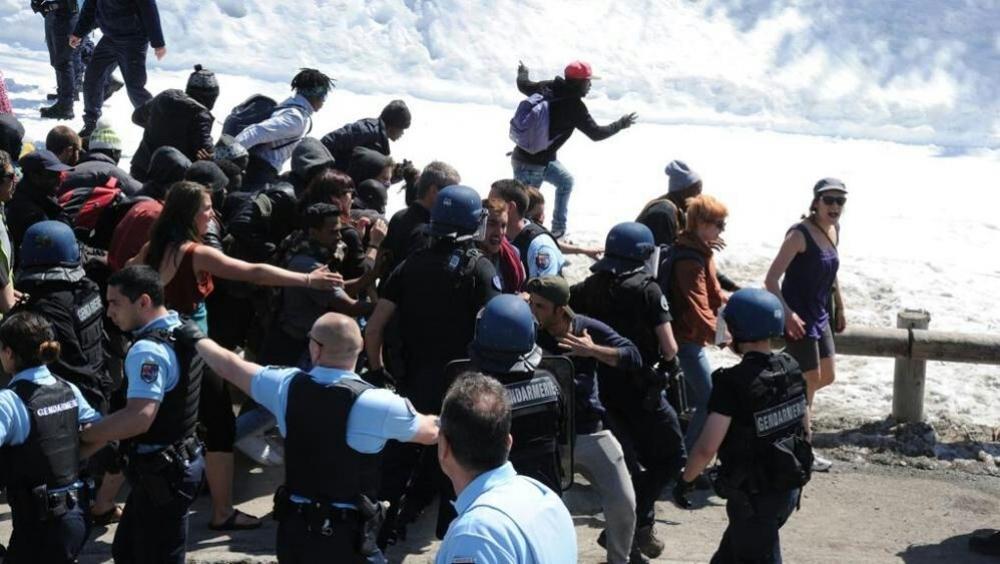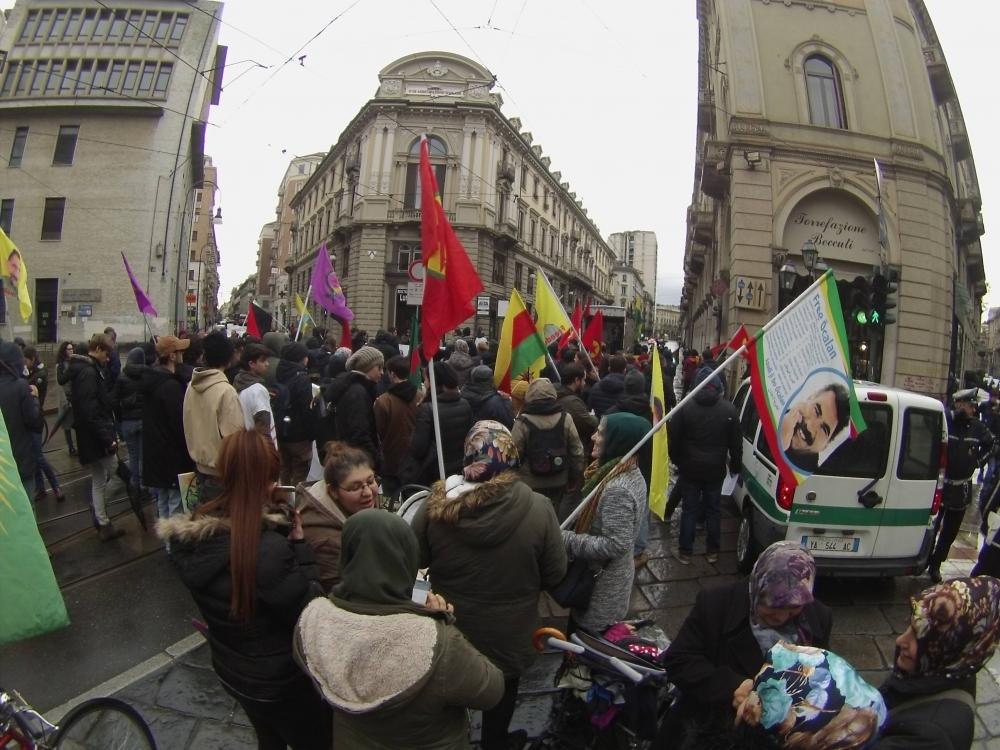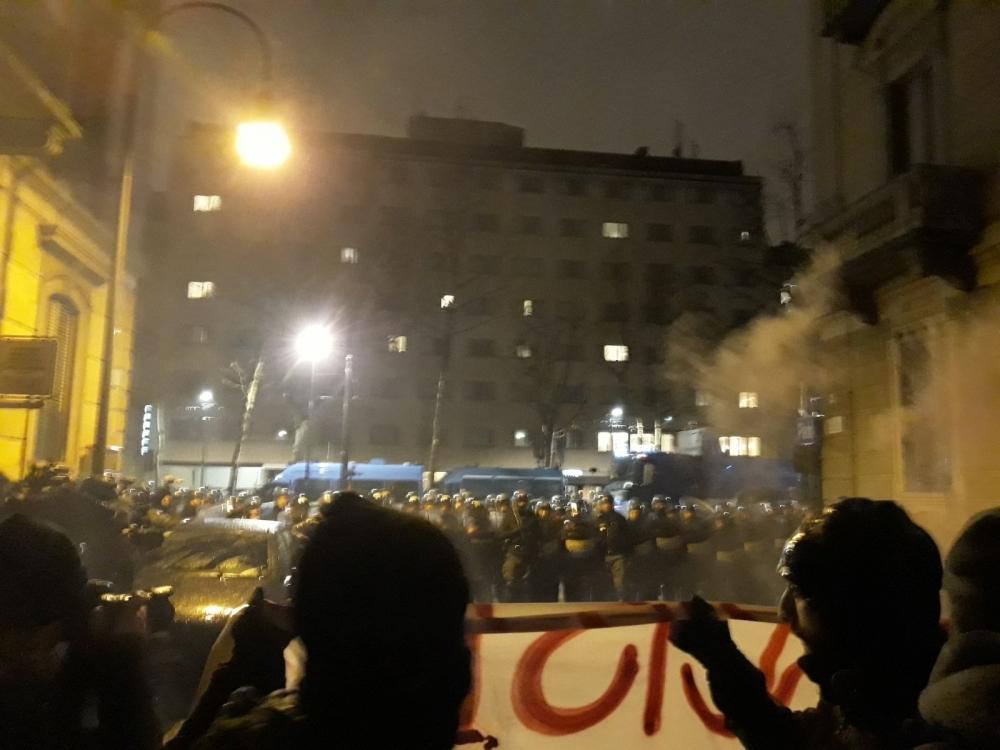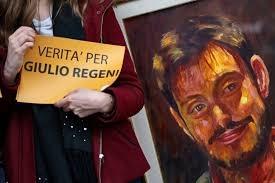
The unveiled language of power (and of its servants)

To affirm – as former diplomat and think-tanker Sergio Romano does on the pages of the Corriere della Sera daily – that we will never know what happened to Giulio Regeni in Cairo is a bit reductive, as broken bones, electrocution and cigarettes being extinguished on his body – practices that always mark the routine of political police forces and secret services all over the world – immediately tell us what happened and who is responsible for it.
It is true – as finely highlighted yesterday by Carlo Formenti on the MicroMega blog – that Romano’s words at least have the merit of unabashedly tell what capitalist power is willing to do (and conceal) in order to keep itself firmly in command. If we want to secure profitable business and a reliable ally against the always present destabilizations in the Near East it is best to hold tight the Egyptian marshal… we were not shy when those methods were being used in Northern Ireland or in Guantanamo (and Romano does not go as far as admitting that, during a certain period, those methods were also used in some police departments or unspecified Italian detention institutes during the Seventies)!
In order to keep living in a democratic way (taking advantage of the global surplus) we have to hold tight Al Sisi, as we did with Mubarak back then…and tomorrow whoever will take responsibility for ruling over a population of 90 million people with carrot and stick (rather the stick over there); which is situated at the crossroads of a relevant geopolitical fault line and epicentre of the effects of the ongoing crisis (the Arab uprisings of 2011 were also aroused by a sudden, exponential rise of cereal staples – bread! – that followed the financial bubble of 2008).
When the crisis of fordist capitalism started to take shape in the heart of the West, between the beginning and the half of the Seventies, the intellectual elites at the service of the Capital warned that Democracy was in crisis because everybody wanted it more and more (Trilateral Commission – The crisis of democracy – 1975). Those who spoke in public, by then, could not afford to explain the coups of a Pinochet or of a Videla as necessary in order to maintain global order. For sure, they could not do this in Europe (while Kissinger and Brezinski, in the US, could). Today, that very intellectual and political class can afford to explain us, for our own sake, that the truth about the death of a researcher like Guido Regeni – that was doing his job well, because he did not accept the directions of a neutral knowledge that works in the interests of who rules us, but questioned the governed and made them talk – is expendable for keeping good relations with the coup leader in charge.
It is the language of Power (of a servant of its) that unveils itself in its essence: to make us accept as a natural given what it is the social,political, historical (and then modifiable) order of things instead. The language of those who want to persuade us that Giulio did not know what he was doing, because he persisted researching and pursuing the voices and the subjects that after Tahrir square kept longing for a change of this state of things. The conservative Romano, actually in a coherent way with his biography, keeps wanting to teach us that those voices have had their day by now and that they should fall silent because there is a new enemy at the gates. With Giulio, we keep believing instead that those voices and that square will return to be full again, in order to reclaim that more for which they fought and that they deserve, in spite of all the kinds of realpolitik of this world.
Ti è piaciuto questo articolo? Infoaut è un network indipendente che si basa sul lavoro volontario e militante di molte persone. Puoi darci una mano diffondendo i nostri articoli, approfondimenti e reportage ad un pubblico il più vasto possibile e supportarci iscrivendoti al nostro canale telegram, o seguendo le nostre pagine social di facebook, instagram e youtube.













